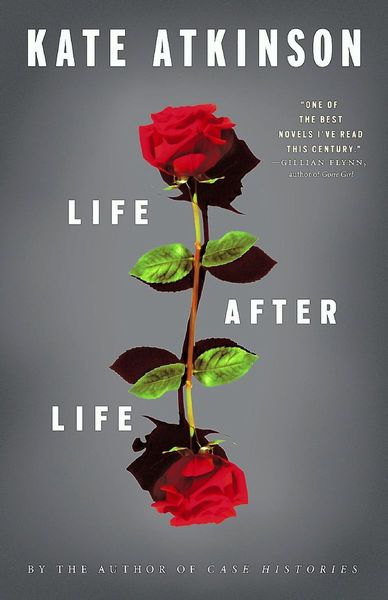
Life After Life A Novel
What if you could live again and again, until you got it right? On a cold and snowy night in 1910, Ursula Todd is born to an English banker and his wife. She dies before she can draw her first breath. On that same cold and snowy night, Ursula Todd is born, lets out a lusty wail, and embarks upon a life that will be, to say the least, unusual. For as she grows, she also dies, repeatedly, in a variety of ways, while the young century marches on towards its second cataclysmic world war. Does Ursula's apparently infinite number of lives give her the power to save the world from its inevitable destiny? And if she can -- will she? Darkly comic, startlingly poignant, and utterly original -- this is Kate Atkinson at her absolute best.
Reviews
Abigail F@collapsinglibrary
p.@softrosemint
Ashley@aikursoul
Peggy Walker@lectrice93
Colleen@mirificmoxie
Amy Thibodeau@amythibodeau
Magnus Dahl@gorillotaur
Skyler Blue@skylerblue
Kit@nightswimming
Ryan Petriello@framesloaf
Fraser Simons@frasersimons
Jenna@jenna
Cindy Lieberman@chicindy
Sarah Ryan@sarahryan
Sabine Delorme@7o9
Terri Arnold@terriarnold
Jane McCullough@janemccullough
Melody Izard@mizard
lyn@lynwho
Cerys@burntoutbookworm
Cerys@burntoutbookworm
María Belén@mbferreyra
Amanda Wells@amandawells
Tanya Sutton@mrsreads
Highlights
Katie Constable@katie_constable
Page 579
Katie Constable@katie_constable
Page 557
Katie Constable@katie_constable
Page 551